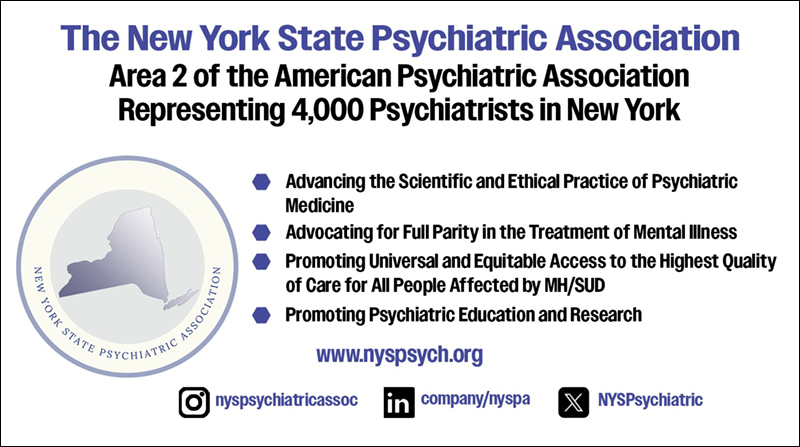Earlier this year, the Biden Administration launched a new national strategy on Suicide Prevention. According to the federal Substance Abuse and Mental Health Services Administration (SAMHSA):
In the United States, someone dies by suicide every 11 minutes; the rates of suicidal behaviors have risen over the past decade; and disparities in suicide rates among certain populations are growing… There also is concern about suicide trends amid the ongoing mental health and overdose crises and on the heels of the COVID-19 pandemic, in which many people experienced loss, social isolation, behavioral health problems, and inequities in health care resources, education, housing, and other suicide risk factors.1

SAMHSA’s action plan calls on all individuals to:
- Care about suicide prevention through a thoughtful strategy that blends prevention, intervention, treatment, and postvention support.
- Connect our prevention efforts to community and culture as key protective factors for health and wellbeing.
- Collaborate with public and private sector partners, people with suicide-centered lived experience, and populations disproportionately affected by suicide to achieve meaningful, equitable, and measurable advancement in suicide prevention.2
This federal strategy includes improving collection and reporting on data collected through 988, the National Suicide Prevention Lifeline, as well as assisting states in providing support for populations disproportionately impacted by suicide and partnering with other federal agencies.
The U.S. Department of Health and Human Services has also prioritized suicide prevention in the administration of federal health care programs. According to data issued by the federal Centers for Disease Control and Prevention, the suicide rate among those age 65 and older, who make up a majority of the Medicare population, increased 4.5% from 2021 to 2022.3 This is a vulnerable population that requires enhanced support and intervention. On November 1, 2024, the Centers for Medicare and Medicaid Services (CMS) issued its final Medicare physician fee schedule (PFS) rule finalizing changes to Medicare physician payments and other Medicare Part B policies, effective January 1, 2025.4
This year, the Medicare PFS final rule includes coverage for a variety of new services focused on enhancing access to behavioral health services. These new services are intended to address patients in crisis, including those with suicidal ideation or those at risk of dying by suicide or overdose. Newly covered services include safety planning intervention, post-discharge telephone follow-up contact, and digital mental health treatment.
Safety Planning Interventions
The new Safety Planning Intervention service code is intended “to develop a personalized list of coping and response strategies and sources of support that the person can use in the event of experiencing thoughts of harm to themselves or others.” As noted in the final PFS rule, basic components of a safety plan include: (i) recognizing warning signs of an impending suicidal crisis or actions that increase the risk of suicide; (ii) employing internal coping strategies; (iii) utilizing social contacts and social settings as a means of distraction from suicidal thoughts and/or taking steps to reduce the risk of suicide; (iv) utilizing family members, significant others, caregivers, and/or friends to help resolve the crisis; (v) contacting mental health professionals, crisis services, or agencies; and (vi) making the environment safe, including restricting access to lethal means, as applicable.5
To permit practitioners to perform and bill for this code, CMS created a new Healthcare Common Procedure Coding System (HCPCS) code designated as G0560, as follows:
G0560 (Safety planning interventions, each 20 minutes personally performed by the billing practitioner, including assisting the patient in the identification of the following personalized elements of a safety plan: recognizing warning signs of an impending suicidal or substance use-related crisis; employing internal copies strategies; utilizing social contacts and social settings as a means of distraction from suicidal thoughts or risky substance use; utilizing family members, significant others, caregivers, and/or friends to help resolve the crisis; contacting mental health or substance use disorder professionals or agencies; and making the environment safe)
G0560 may be performed by any practitioner authorized to furnish services for the diagnosis and treatment of mental illness, including physicians, psychiatric nurse practitioners, clinical social workers, mental health counselors, marriage and family therapists, and clinical psychologists. This standalone code can be billed in 20-minute increments and also will be eligible for payment when furnished via telehealth. G0560 is expected to be valued similarly to code 90839, the 60-minute code for psychotherapy for crisis, due to the similar levels of intensity.
Post-Discharge Telephonic Follow-up Contacts Intervention
CMS has also approved new HCPCS code G0544 to prevent adverse outcomes and address the increased risk of suicide in the 12-month period following an emergency department visit for mental health issues, including self-harm, intentional overdoses, or suicidal ideation. This code is intended to provide reimbursement for telephone contacts with a patient following discharge, as follows:
G0544 (Post-discharge telephonic follow-up contacts performed in conjunction with a discharge from the emergency department for behavioral health or other crisis encounter per calendar month)
This code can be used in any situation where a patient has been discharged following a crisis encounter, such as an emergency department visit, inpatient admission, or crisis stabilization service, and a telephone number has been provided to the billing practitioner upon discharge. The goals of this new service are to (i) encourage the use of a safety plan if needed during a crisis; (ii) update the safety plan to ensure effectiveness; (iii) express psychosocial support; and (iv) facilitate engagement in follow-up care. G0544 will be payable even if G0560 (Safety Planning Intervention) was not previously furnished or billed for the same patient. A patient must consent to the receipt of the telephone contact at least during the initial call and must be notified that Medicare cost-sharing may apply.
G0544 will be a bundled billing code comprised of four calls per month, each lasting between 10-20 minutes. However, G0544 may be billed only if at least one real-time telephone interaction actually occurs during the month – unsuccessful attempts to reach a patient by telephone will not count for billing purposes. This code will not be eligible for telehealth services.
Digital Mental Health Treatment
To further enhance access to supportive behavioral health services, CMS has also approved reimbursement for digital mental health treatment, which are devices approved by the Food and Drug Administration and “intended to treat or alleviate a mental health condition” in conjunction with ongoing behavioral health treatment. Coverage will be provided for mental health treatment interventions that have a “demonstrable positive therapeutic impact on a patient’s health.” These devices include smartphone apps, text messaging, email, and online forums that offer convenient access to mental health support and self-management tools, such as symptom tracking, habit formation, targeted change in behaviors, and peer support. 6
CMS has created three new HCPCS Codes for digital mental health treatment:
G0552 (Supply of digital mental health treatment device and initial education and onboarding, per course of treatment that augments a behavioral therapy plan)
G0553 (First 20 minutes of monthly treatment management services directly related to the patient’s therapeutic use of the digital mental health treatment (DMHT) device that augments a behavioral therapy plan, physician/other qualified health care professional time reviewing information related to the use of DMHT device, including patient observations and patient-specific inputs in a calendar month and requiring at least one interactive communication with the patient/caregiver during the calendar month).
G0554 (each additional 20 minutes of monthly treatment management services)
G0552 will provide reimbursement for the cost of a digital mental health treatment device and initial education and onboarding in the use of the device. Coverage will be available only when a practitioner incurs the cost of a device furnished to the patient and when the use of a device is incident to the billing practitioner’s professional services furnished in association with an ongoing treatment under a plan of care. Medicare coverage will not be available if the practitioner incurs no costs in acquiring and furnishing the device to the patient or if the patient procures the device on their own.
It is exciting that SAMHSA and CMS are working to implement policies and strategies intended to prevent suicide and increase access to essential behavioral health services among groups that are disproportionately impacted by suicide. Government efforts to promote awareness and disseminate information to the public about prevention, intervention, treatment, and postvention support are truly valuable. Safety plans, follow-up calls, and use of digital mental health tools have the potential to create life-saving supports for those at increased risk of suicide or intentional overdose. The next steps must include efforts to ensure that Medicaid and commercial insurance also cover these critical safety net services.
Rachel Fernbach, Esq. is the Executive Director and General Counsel of the New York State Psychiatric Association and a Partner of the firm Moritt Hock & Hamroff LLP, where she concentrates her practice in the area of not-for-profit law and health care law with a specialty in psychiatry and other mental health services.
References
- https://www.samhsa.gov/blog/changing-course-suicide-launch-new-national-strategy-suicide-prevention
- Id.
- https://www.federalregister.gov/documents/2024/12/09/2024-25382/medicare-and-medicaid-programs-cy-2025-payment-policies-under-the-physician-fee-schedule-and-other
- Id.
- Id.
- https://www.psychiatry.org/psychiatrists/practice/digital-mental-health





